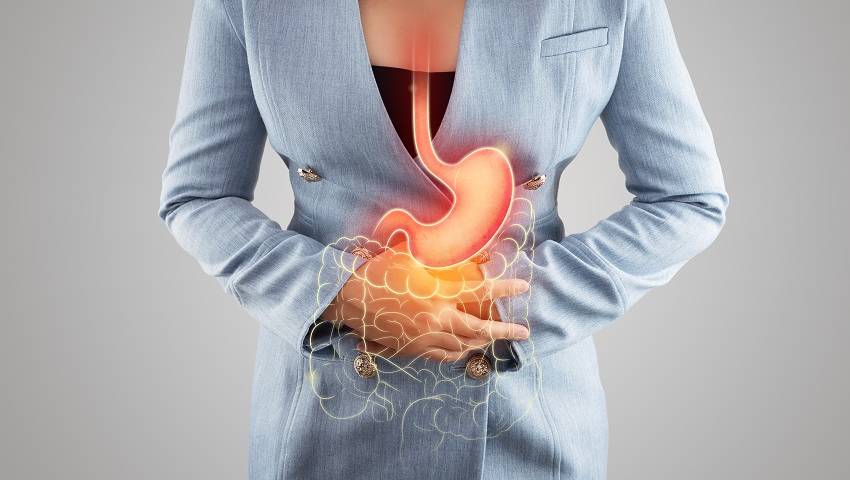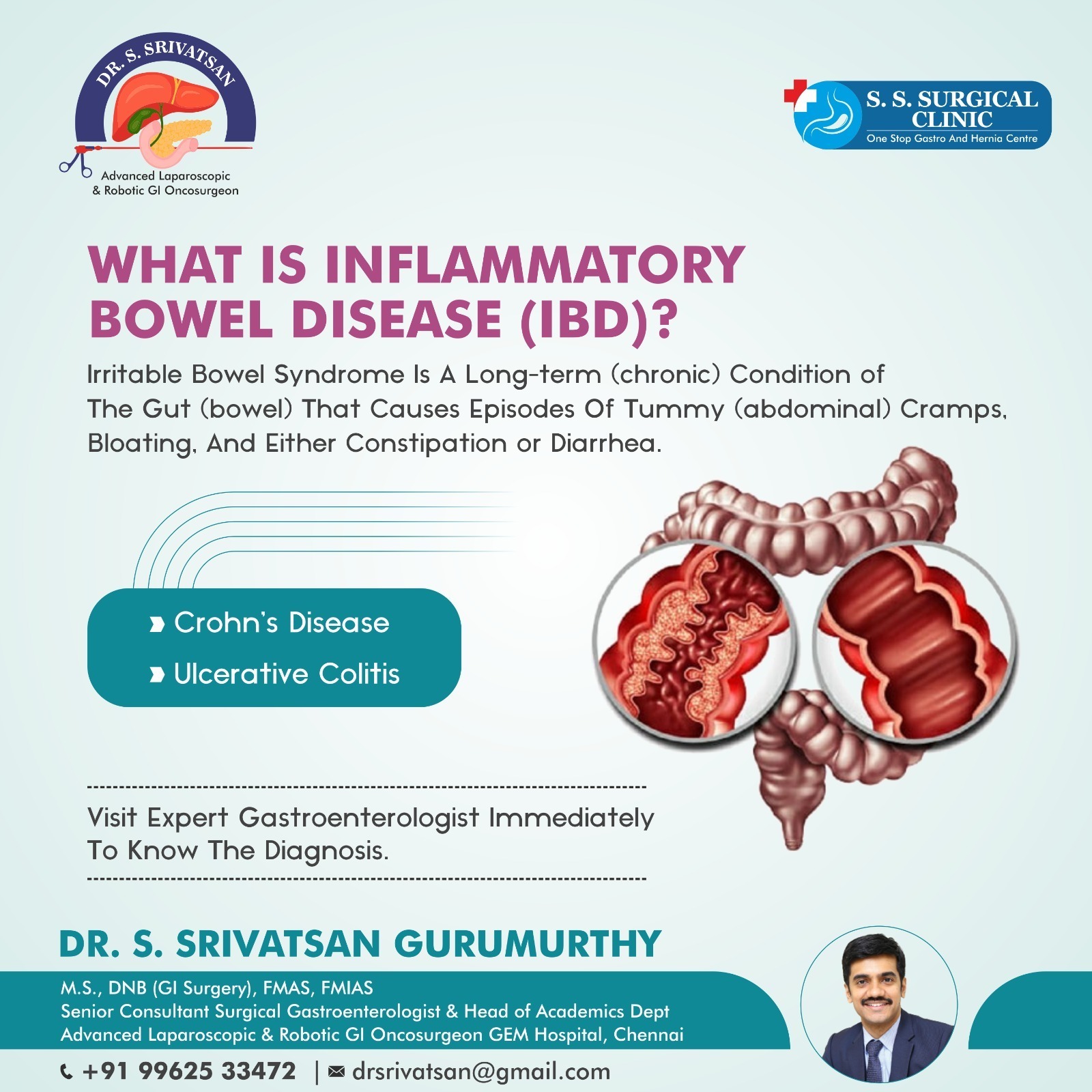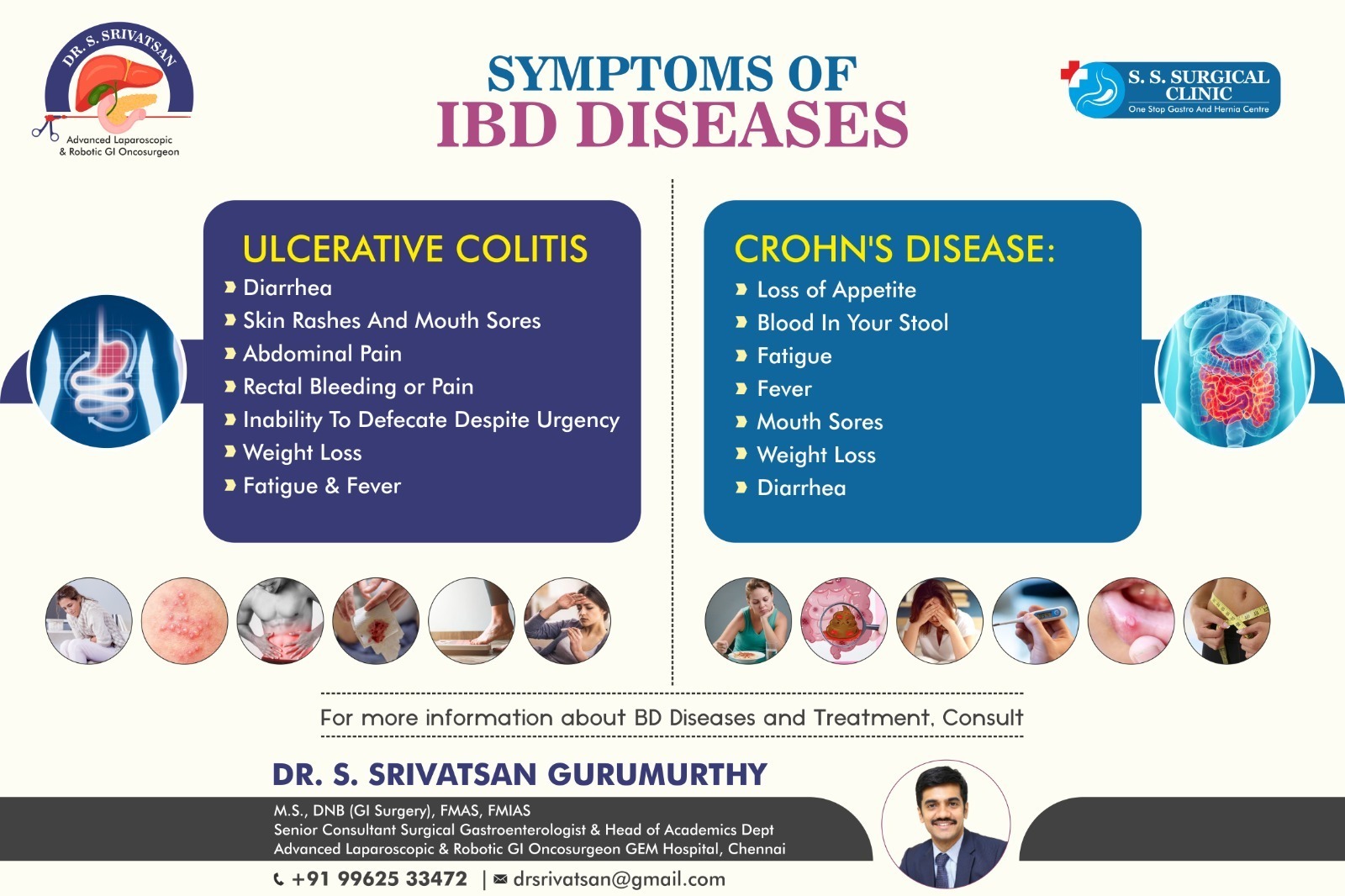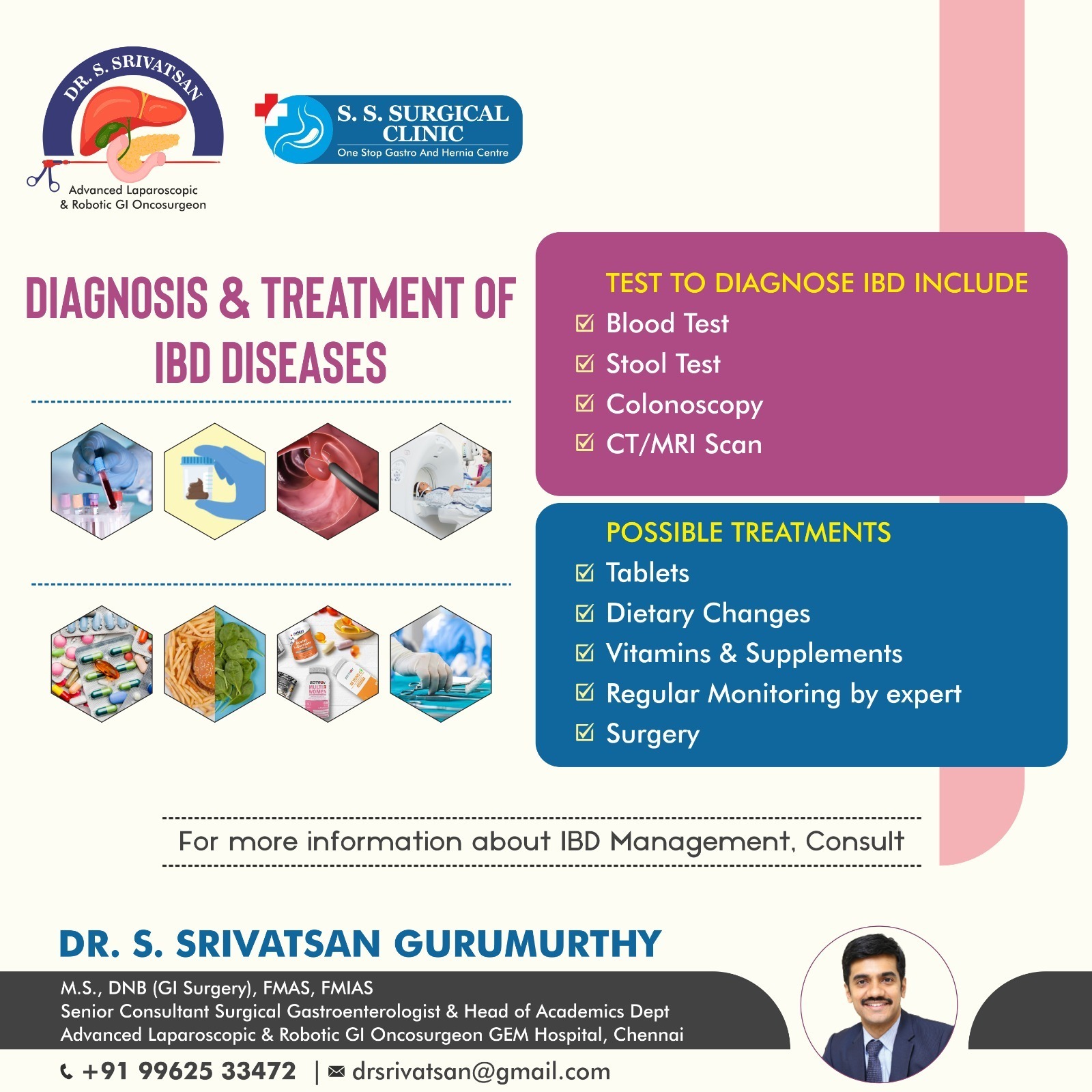
- 08/05/2023
- Dr. Srivatsan Gurumurthy
- 0 Comments
- Blog
All About Inflammatory Bowel Diseases(IBD)
Inflammatory Bowel Diseases (IBD) is a chronic inflammatory condition that affects the digestive tract, including the colon and small intestine. The two most common forms of IBD are Crohn’s disease and ulcerative colitis, which can cause a range of symptoms, including abdominal pain, diarrhea, and weight loss. World IBD Day which is on May 19th each year is an annual awareness day that is an opportunity to educate the public about the challenges faced by people with IBD and to advocate for better understanding, treatment, and support. Many organizations and healthcare providers use this day to hold events and activities, share information about IBD, and promote fundraising for research and support servic

Inflammatory Bowel Disease is a lifelong condition that can cause a variety of symptoms, including diarrhea, abdominal pain, fatigue, and weight loss. As there is no cure for Inflammatory Bowel Disease, but there are some treatments that can help manage the symptoms and improve quality of life.
Types of Inflammatory Bowel Diseases:
- Ulcerative colitis is a type of IBD that affects the lining of the colon and rectum. The lining of the colon becomes inflamed and sores (ulcers) may form. Ulcerative colitis usually starts in the rectum and spreads upward into the colon.
- Crohn’s disease is a type of IBD that can affect any part of the digestive tract from the mouth to the anus. That most commonly affects the small intestine and colon. Crohn’s disease can cause inflammation, sores, and narrowing of the digestive tract.
The symptoms, diagnosis, and treatment of IBD can vary depending on the type and severity of the disease.
Symptoms of Inflammatory Bowel Disease:

The symptoms of IBD can vary from person to person and may include:
- Abdominal pain and cramping
- Diarrhea, often with blood or mucus
- Fatigue
- Loss of appetite
- Weight loss
- Fever
- Anaemia
- Joint pain
If you experience any of these symptoms, consult Dr. S. Srivatsan Gurumurthy to get a diagnosis.
Diagnosis of Inflammatory Bowel Disease:

Diagnosing IBD typically involves a combination of medical history, physical examination, and diagnostic tests. These may include:
- Blood tests is done to check for signs of inflammation and anaemia
- Stool tests is used to check for infection and inflammation
- Imaging tests, such as X-rays, CT scans, or MRIs, to view the digestive tract
- Endoscopy or colonoscopy, where a flexible tube with a camera is inserted into the digestive tract to view the tissue lining and take samples for testing
Treatment of Inflammatory Bowel Disease:
There is no cure for IBD medication can be extremely useful in managing your symptoms Most patients can expect an improvement in their symptoms and quality of life once the correct treatments have been started. Treatment for IBD comes in many different forms, such as:
- Medication: Anti-inflammatory medications are the first step in IBD treatment. These medications help to control inflammation of the digestive tract. So you don’t have symptoms.
- Surgery: Surgery is needed when medications no longer provide symptom relief. As per Data 7 in 10 people with Crohn’s disease eventually need surgery and after 30+ years of living with ulcerative colitis, about 1 in 3 people need surgery.
- Lifestyle Changes: As with many digestive health issues, diet, exercise, and relaxation play an important part in managing chronic conditions, such as IBS. Patients are advised to avoid heavily processed foods (ready meals) and fatty or spicy foods, cut down on caffeine and fizzy or alcoholic drinks, and not eat too much fruit.
If you or someone you know is living with IBD, this is a great opportunity to learn more about the condition, connect with others who have similar experiences, and find resources to manage the condition effectively.
Some additional information about Inflammatory Bowel Disease:
- IBD is more common in people who smoke.
- IBD is more common in people who have a family history of IBD.
- IBD is not contagious.
If you have any questions or concerns about IBD, please talk to Dr. Srivatsan Gurumurthy.
